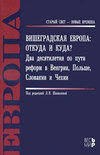
-
 Anglický jazyk
Anglický jazyk
Anti-psychiatry
Autor: Source: Wikipedia
Source: Wikipedia. Pages: 107. Chapters: Michel Foucault, Involuntary commitment, Gilles Deleuze, Félix Guattari, Peter Breggin, Franco Basaglia, History of anti-psychiatry, Anti-Oedipus, Hearing Voices Movement, Alaska Mental Health Enabling Act, Critical... Viac o knihe
Na objednávku
23.50 €
bežná cena: 26.70 €
O knihe
Source: Wikipedia. Pages: 107. Chapters: Michel Foucault, Involuntary commitment, Gilles Deleuze, Félix Guattari, Peter Breggin, Franco Basaglia, History of anti-psychiatry, Anti-Oedipus, Hearing Voices Movement, Alaska Mental Health Enabling Act, Critical psychiatry, Niall McLaren, Scientology and psychiatry, Harvey Jackins, Indeterminacy, R. D. Laing, Biopsychiatry controversy, Institution, Citizens Commission on Human Rights, Trauma model of mental disorders, Re-evaluation Counseling, Rosenhan experiment, Judi Chamberlin, Asylums, Kingsley Hall, Titicut Follies, Socialist Patients' Collective, Chester Brown, Rufus May, Involuntary treatment, Soteria, Psychiatry: An Industry of Death, MindFreedom International, World Network of Users and Survivors of Psychiatry, Icarus Project, David Cooper, Fred Baughman, Mad Pride, Richard Bentall, Teresa Cooper, Starson v. Swayze, Psychiatric survivors movement, Leonard Roy Frank, Integrative milieu model, Kevin F. McCready, Tim Jackins, Cognitive liberty, The Gene Illusion, La Borde clinic, Bruce Levine, Stephen Ticktin, Pharmacological Calvinism, The Myth of Mental Illness, Against Therapy, Allen Jones, Radical Psychology Network, Aaron Esterson, PsychRights, Liberation by Oppression: A Comparative Study of Slavery and Psychiatry, American Association for the Abolition of Involuntary Mental Hospitalization, Philadelphia Association. Excerpt: Michel Foucault (French pronunciation: ), born Paul-Michel Foucault (15 October 1926 - 25 June 1984), was a French philosopher, social theorist and historian of ideas. He held a chair at the Collège de France with the title "History of Systems of Thought," and lectured at the University at Buffalo and the University of California, Berkeley. Foucault is best known for his critical studies of social institutions, most notably psychiatry, medicine, the human sciences and the prison system, as well as for his work on the history of human sexuality. His writings on power, knowledge, and discourse have been widely influential in academic circles. In the 1960s Foucault was associated with structuralism, a movement from which he distanced himself. Foucault also rejected the poststructuralist and postmodernist labels later attributed to him, preferring to classify his thought as a critical history of modernity rooted in Kant. Foucault's project was particularly influenced by Nietzsche, his "genealogy of knowledge" being a direct allusion to Nietzsche's "genealogy of morality". In a late interview he definitively stated: "I am a Nietzschean." Foucault was listed as the most cited scholar in the humanities in 2007 by the ISI Web of Science. Paul-Michel Foucault was born on 15 October 1926 in Poitiers, France, to a notable provincial family. His father, Paul Foucault, was an eminent surgeon and hoped his son would join him in the profession. His early education was a mix of success and mediocrity until he attended the Jesuit Collège Saint-Stanislas, where he excelled. During this period, Poitiers was part of Vichy France and later came under German occupation. Foucault got to learn philosophy with Louis Girard. After World War II, Foucault was admitted to the prestigious École Normale Supérieure (rue d'Ulm), the traditional gateway to an academic career in the humanities in France. Foucault's personal life during the École Normale was difficult-he suffered from acute depression
- Vydavateľstvo: Books LLC, Reference Series
- Rok vydania: 2011
- Formát: Paperback
- Rozmer: 246 x 189 mm
- Jazyk: Anglický jazyk
- ISBN: 9781155317458







 Nemecký jazyk
Nemecký jazyk 
 Ruský jazyk
Ruský jazyk 



